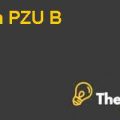
Question 2: What was his effect of editing the email to "stick to the facts?"
Due to the phone call from Mr. Smythe-Jones, which made Mr. Johannes Van den Bosch bit frustrated and angry, might result in a serious email towards the Mexico office. At the initial stage, when Van de Bosh started writing his email, it was completely filled with some emotional frustrations and annoyance. On the other hand, Mr. Johannes Van den Bosch was a complete professional and did want to add any anger expressing words and factors to influence his habit of competently resolving issues in the workplace. Therefore, he decided to edit his email and then stick only to the genuine facts and figures, which could effectively play its part in solving the issue. The reason for editing down this email was that it might not appear to be dull, inappropriate and unprofessional. However, it can be said that his exceptional task oriented tactics in addition to his individualistic approach blinded him from the cultural allegations that such type of email might generate when actually read by the Mexican counterpart. Use of harsh and inappropriate words supported by aggressive approaches and orders in email would not be perceived in a positive manner by the Mexican counterpart that might result in insult towards him. Sticking and restricting the email totally to the facts was completely professional approach and was accepted in the individualistic society of Dutch people but might be entirely misunderstood by the Mexican society, who are enormous followers of collectivist approach (Kim, 2005) because the email was completely based on genuine facts, figure and appropriate questions which needs to answered.
Due to the complication and sensitivity of the issue and the information that the two corresponding person came from diverse cultural backgrounds, using email as the medium of contact might result in an elevated level of misunderstanding. Hofstede's cultural dimensions theory can play optimistic role because this theory might help Mr. Johannes Van Den Bosch in writing a proper email to the Mexican counterpart. This theory would be better for him to understand the role of cultural values and norms within the diverse societies. People across the globe possess different backgrounds and they expect others to give respect to their cultural values and norms. Here the concept of intercultural communication should also be implemented. Intercultural communication is a competent tool, which accomplishes the aims in a manner that is suitable to the relationship and context. Intercultural communication therefore needs to link the dichotomy between appropriateness and effectiveness between the communicators (Brislin, 1992).
Question 3: What cultural assumptions underlie Van de Bosch email?
Dutch Van de Bosh is highly influenced by the job oriented approaches of the individualistic Dutch culture. Van de Bosh is paying attention in getting the job done at any cost and solving the existing issue rather than establishing bonds with the Mexican office or that particular corresponding person and understanding the motives behind the actual delay. He might also be comparing Mr. Menendez to the world' famous “Always late”, a typical Latino stereotype. The reason for such a point to point email could be the cultural assumptions that are actually practiced by the Dutch people. Dutch society is a strict follower of the rules of business, religious obligations and their ideology. Each and every group possesses its own newspapers, schools, trade unions, clubs, etc. Highlights of such practices can still be seen in today’s Dutch media, education system and the interest groups. The Dutch society is modern and egalitarian (Tanke, 1977). The people are tolerant, modest, self-reliant, entrepreneurial and independent. They actually value education, ambition, hard work, and ability. The Dutch posses habit of disliking towards the nonessential elements. Ostentatious behavior towards the work is usually avoided. These cultural norms and limitations might have triggered Mr. Johannes Van den Bosch to write such an email. As per the analysis, this email was entirely based on facts and queries, which needed to be brought into consideration of Mr. Pablo. Since there was no or less element of courtesy in the email; therefore, Mr. Pablo replied in a comparatively inappropriate manner. He must have added little sentences related to healthy collaborations, which need to be maintained by both the counter parts. Issues with much variation and unambiguous words that sound authoritarian are likely to impact in a negative manner on the respondent; hence, a barrier in the overall communication process across the cultural compass (Gudykunst, 2003)...................................
This is just a sample partial case solution. Please place the order on the website to order your own originally done case solution.











